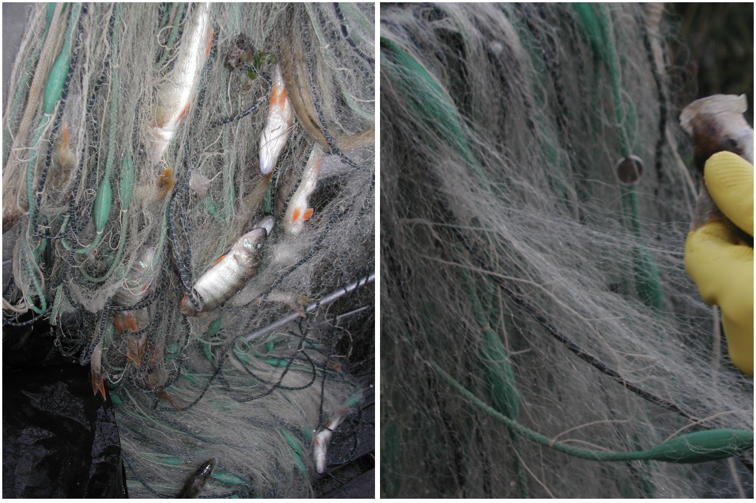The government of Bangladesh will introduce new regulations for the size and fabric of fishing nets to prevent unwanted bycatch of all kinds of fish due to indiscriminate mesh size. What are the chances of enforcement?
Together with experts and local net manufacturers, the nets will be developed for the respective target species [1]. Back in March 2024, the Bangladeshi Fisheries Minister announced the government’s intention to restrict the production of illegal fishing nets, including monofilament nets [2], which are mainly used for gillnets and which, once lost in the water, become the most dangerous type of ghost nets because fish easily get caught in the finespun but strong synthetic fabric, which does not decompose for many years.
Bangladesh could learn from Senegal’s mistakes
As in many structurally weak countries with widespread poverty, particularly in informal sectors such as artisanal fishing, the main problem is the enforcement of rules against the short-term interests of some stakeholders. Senegal is an illustrative example of this problem. The West African republic, considered one of the best governed countries on the continent, banned monofilament as early as 1987. Despite this law, which has since been confirmed twice, the use of monofilament nets is still widespread in artisanal fisheries [2], as I observed during the fair-fish project I led in Senegal almost 20 years ago. Fisheries officers are occasionally sent out to inspect fishing gear, but too often reportedly look the other way when they come across monofilament nets; there are even officers who are not sure whether monofilament has really been banned [3]. Even the director of Senegal’s marine fisheries authority recently tried to downplay the threat posed by abandoned gillnets to already depleted fish stocks: ‘We still have fish,’ he said, in contrast to the serious scientific evidence.
My own experiences with the local fisheries services were disappointing almost everywhere in Senegal. The officers in charge did not document the daily catches, so when they were asked for data by their superiors, if at all, they made it up, months or even years after the fact, giving the daily weighings to the nearest decimal point. They may not have neglected their work out of sheer laziness, but also under pressure from some fishermen or fishmongers.
Governments should invest in brave officers
However, I had the opportunity to befriend Eric, the then head of the fisheries service of one of the department in the Saloum, a remote region in the south of the country, from where all seconded civil servants, including doctors and teachers, tried to get a job in the capital Dakar as quickly as possible. Not so Eric. After being in charge of fisheries services at various points along the coast and having to leave again and again because he was performing his duties strictly, he ended up in the Saloum and knew that this was his last post. But even here he had trouble finding staff after two of his agents were severely beaten up in revenge for the confiscation of an irregular net.
Therefore, investing in local fisheries services to equip them with enough trained staff and adequate means of transport and communication is absolutely key to combating and preventing illegal fishing activities. Regulations alone will never do the job.
Title picture:
Permitted gillnet made of monofilament in use by a Swiss artisanal fisherman (credit: Billo Heinzpeter Studer)
References:
[1] https://www.dhakatribune.com/bangladesh/370824/fisheries-adviser-farida-govt-to-regulate-size (thanks to ICSF for this link)

